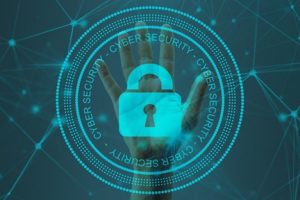
Image credit: Pixabay
Source: https://pixabay.com/photos/cyber-security-internet-network-4610993/
Today, companies manage an enormous amount of data, and some of it is extremely sensitive. Every day, millions of users trust websites with information about their browsing history, professional experience, and even bank account data.
This has a lot of benefits: people are able to easily apply to jobs, make purchases, and simply access social networks. However, as our ‘Guide to the Different Types of Cyber Attacks’ touched on, a lot of the dangers of the modern internet revolve around the theft or unauthorized spread of data. Below we discuss some ways in which access to the internet has made the world less safe.
Stolen User Information
In recent years, news of user information being stolen is not uncommon. Companies like Facebook and PlayStation have already been the victims of hackers, which resulted in the private information of potentially millions of users being stolen. This usually involves usernames and passwords, but it can also include credit card numbers.
So far, companies that suffered these attacks have been quick to alert their users. For example, after increased reports of cyber-attacks, Sony recommended people use a 2-step verification authentication process. However, once a hacker has the right pieces of information, they can easily empty your bank account, putting millions of users at risk of losing everything.
Vulnerability of Dangerous Information
Experts have been warning against the risks of organized cyber-attacks against public infrastructure for many years. But regardless of how this threat is constantly being downplayed, this type of attack has already happened.
Bruce Schneier argues in “Click Here to Kill Everybody” that hackers have the power to hurt millions of people. He cites the example of the Russian terrorists hacking on a Ukrainian power plant, and then suggests that the same could happen in labs working with dangerous viruses. The problem could be prevented by improving cybersecurity, but the author states that most corporations have little incentive to do so, as they have no competitors.
Big Data
Companies have been mining big data for a couple of years now. The technique consists of applying statistical analysis to the enormous amounts of data corporations manage to collect from people. While the objective of data mining is to answer business-related questions, it could also be used to obtain sensitive information and manipulate people.
The idea of “digital truth serum” comes up in a book called “Everybody Lies” by Seth Stephens-Davidowitz. The book treats big data as a powerful tool, where questions like “can violent media increase crimes” or “how can we beat the stock market” could be answered. This digital tool offers an immense amount of power, and could easily be used to scam people or take down governments.
Blockchain and Personal Records
The popularity of cryptocurrency has led people and organizations to explore the potential of blockchain technology. Its apparent invulnerability to hacker attacks has even made people consider that it should be used to store sensitive information like voting records or medical histories.
Forbes reports that storing this type of data on blockchains may protect citizens against illegal alteration of their records. However, it could also be used to steal them. In the case of cryptocurrency, for example, it’s relatively easy to find the name of a wallet belonging to an individual, and then trace every single change made to it. If something similar were to happen to governments, citizens could see their voting records tracked without even knowing about it.
The internet is a powerful tool. It allows people to easily communicate with relatives thousands of miles away at no cost, purchase a product from any part of the world, and enjoy multiple forms of entertainment. However, our jobs, transportation systems, and finances have become heavily reliant on the worldwide web.
Sadly, there are no organizations that are invulnerable to cyber-attacks. Big social networks and electrical grids have fallen to international terrorism and hackers, simply by accessing a poorly secured site. Having antivirus software installed and using 2-step verification may not be enough. In fact, people probably won’t be safe until big corporations and governments start investing in high-end online safety solutions.
Article contributed by Rachel Jesten
Exclusively for ETTE
